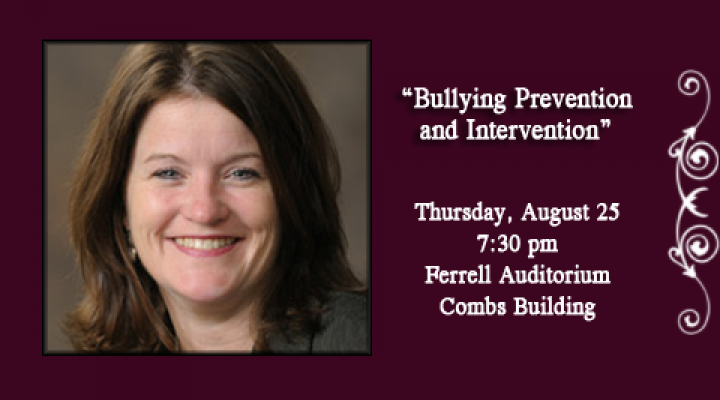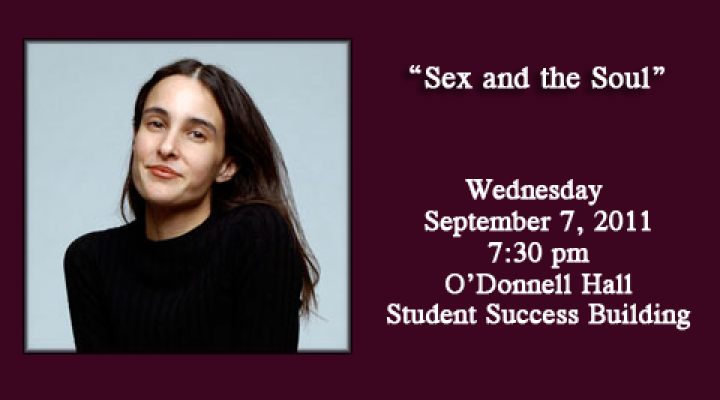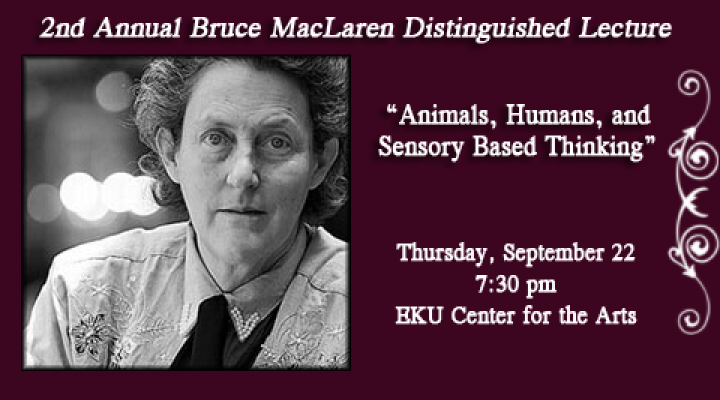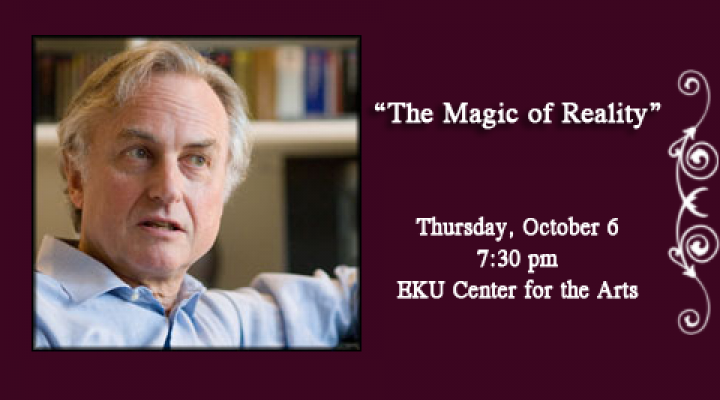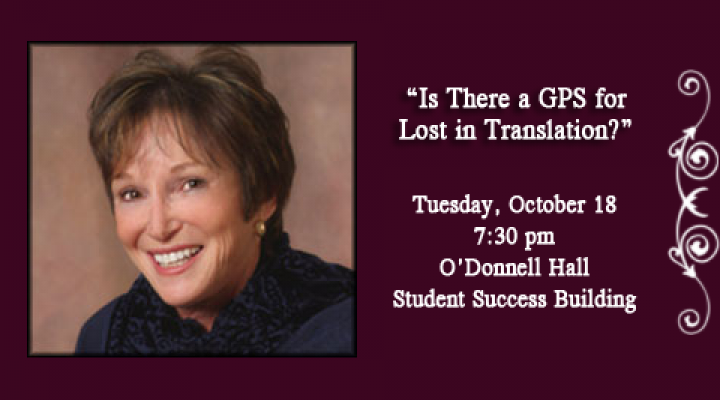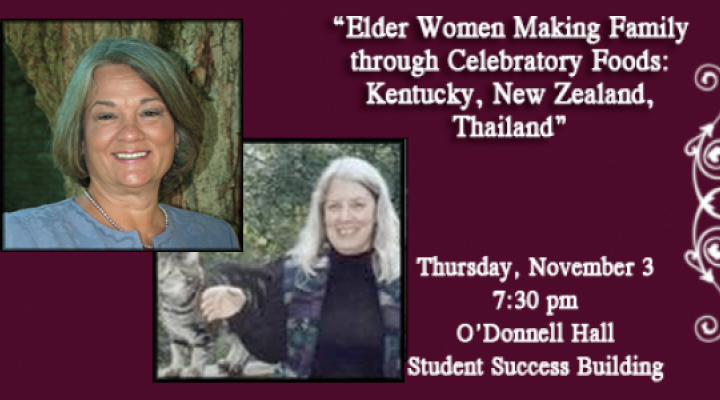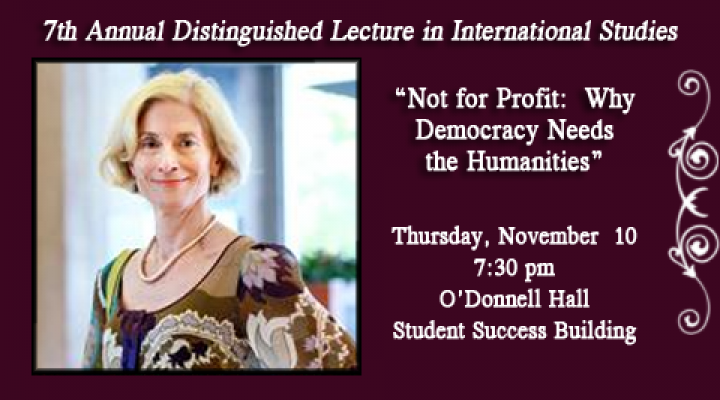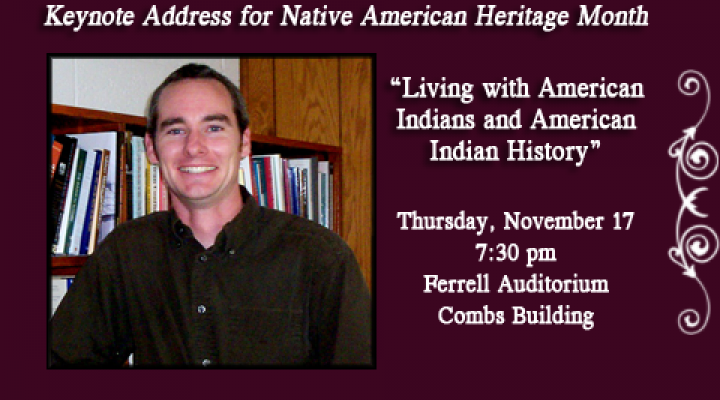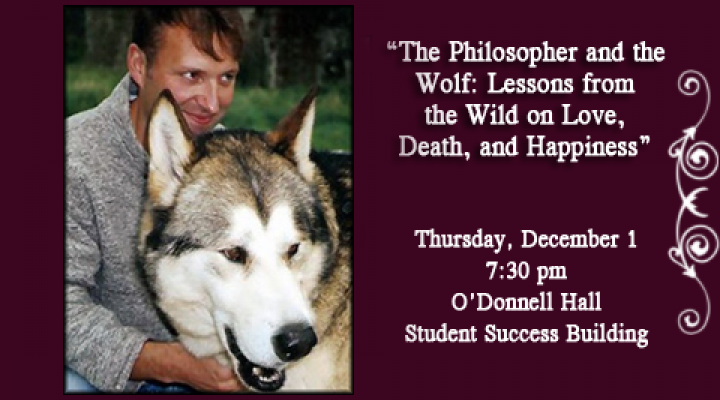Fall 2011 Speaker Biographies
Dorothy Espelage
Dorothy Espelage, Ph.D., is a Professor of Child Development and Associate Chair in the Department of Educational Psychology at the University of Illinois, Urbana-Champaign. The foci of Dorothy's scholarship at the University of Illinois at Urbana-Champaign includes investigations of several health-related behaviors, including bullying and youth aggression, disordered eating in adolescents and young adults, and psychosocial adjustment of families of children managing chronic illness.
Currently, Dorothy is co-editor of three published books including Bullying in North American Schools: A Social-Ecological Perspective on Prevention and Intervention and International Handbook of Bullying published by Routledge. She is also the incoming Associate Editor of the Journal of Counseling Psychology. She has presented hundreds of workshops and in-service training seminars for teachers, administrators, counselors, and social workers across the U.S.
The majority of Dorothy's energy is spent on two programs: bullying during early adolescence and eating disorders. Within the last few years, both of these programs have evolved into the study of these health behaviors during early adolescence and both have included examination of the influences of the peer group on their maintenance. Dprothy also works with graduate students whose research interests are in childhood sexual abuse and dating violence.
Donna Freitas
From: Book Browse website: Donna Freitas: Biography
Donna Freitas is Associate Professor of Religion at Hofstra University, and Writer in Residence at Hofstra's Honors College. Her nonfiction books for adults include, most recently, Sex and the Soul: Juggling Sexuality, Spirituality, Romance and Religion on America’s College Campuses (Oxford), based on a national study about the influence of sexuality and romantic relationships on the spiritual identities of America’s college students. She is also a devoted fan of the celebrated British children’s author Philip Pullman, and her book about the religious and ethical dimensions of his award-winning trilogy Killing the Imposter God: Philip Pullman’s Spiritual Imagination in His Dark Materials (Jossey-Bass/Wiley) hit the bookshelves in the middle of a major, national controversy about the release of the trilogy’s first movie installment.
Much of her writing, teaching, and lecturing centers around struggles of belonging and alienation with regard to faith, particularly among young adults and especially with regard to young women. She loves to ask Big Questions (Why are we here anyway?) and delights in discovering the many possible forums in which to dabble with the stuff of faith, religion, spirituality, and gender. This attitude accounts for her upcoming venture into the world of fiction, since she will see the publication of her first novel, The Possibilities of Sainthood (Frances Foster Books / Farrar, Straus and Giroux)— about a fifteen-year-old girl, Antonia Lucia Labella, who aspires to become the first official living saint in Catholic history.
Chautauqua Film Screening: Temple Grandin
From: HBO Films: Temple Grandin: Synopsis
Staring Claire Danes, Julia Ormond, Catherine O'Hara and David Strathairn, Temple Grandin paints a picture of a young woman's perserverence and determination while struggling with the isolating challenges of autism at a time when it was still quite unknown. The film chronicles Temple's early diagnosis; her turbulent growth and development during her school years; the enduring support she received from her mother (Ormond), aunt (O'Hara) and her science teacher (Strathairn); and her emergence as a woman with an innate sensitivity and understanding of animal behavior.
For more information about this film, please visit HBO Films: Temple Grandin: Synopsis.
Temple Grandin
From: Dr. Temple Grandin's Web Page
Temple Grandin, Ph.D. is a designer of livestock handling facilities and a Professor of Animal Science at Colorado State University and is the most accomplished and well-known adult with autism in the world.
Dr. Grandin obtained her B.A. at Frankin Pierce College and her M.S. in Animal Science at Arizona State University. Dr. Grandin received her Ph.D in Animal Science from the University of Illinois in 1989. Today she teaches courses on livestock behaviour and facility design at Colorado State Univeristy and consults with the livestock industry on facility design, livestock handling, and animal welfare. She has appeared on television shows such as 20/20, 48 Hours, CNN Larry King Live, PrimeTime Live, the Today Show, and many shows in other countries. She has been featured in People Magazine, the New York Times, Forbes, U.S. News and World Report, Time Magazine, the New York Times book review, and Discover magazine. In 2010, Time Magazine named her one of the 100 most influential people. Interviews with Dr. Grandin have been broadcast on National Public Radio. She has also authored over 400 articles in both scientific journals and livestock periodicals on animal handling, welfare, and facility design. She is the author of Thinking in Pictures, Livestock Handling and Transport, Genetics and the Behavior of Domestic Animals, and Humane Livestock Handling. Her books Animals in Translation and Animals Make Us Human were both on the New York Times best seller list. Animals Make Us Human was also on the Canadian best seller list. Her life story has also been made into an HBO movie titled Temple Grandin, staring Claire Danes. The movie shows her life as a teenager and how she started her career.
For more information on Dr. Grandin see: http://www.templegrandin.com/
Richard Dawkins
Born in Nairobi, Kenya, Professor Richard Dawkins is one of the world’s leading scientific intellectuals, specialising in evolutionary biology. Dawkins studied zoology at Balliol College at Oxford, completing a BA in zoology and remaining there to later complete his Masters and his D. Phil. Dawkins went on to become an Assistant Professor in Zoology at the University of California at Berkeley but returned to Oxford as a junior lecturer in Zoology and, in time, was awarded a Fellowship at New College. He later held the position of Charles Simonyi Professor of the Public Understanding of Science at Oxford University.
Dawkins is best known for his books which include: The Selfish Gene, The Extended Phenotype, The Blind Watchmaker, and The God Delusion. The last of these, widely influential and controversial, has sold 1.5 million copies in its English-language edition and been translated into 31 other languages. The Wall Street Journal said his “passion is supported by an awe-inspiring literary craftsmanship.” The New York Times Book Review has hailed him as a writer who “understands the issues so clearly that he forces his reader to understand them too.”
Website: The Richard Dawkins Foundation for Reason and Science
Carole Garrison
From: Carole Garrison Website and Ohio Women's Hall of Fame
Dr. Carole Garrison has been influential in humanitarian efforts and women's causes at every level. She has been president of the Akron Area Women's History Project, founding director of the University of Akron's Women's Studies Program, first vice chair of the Ohio Women's Commission, served on the boards of the National Women Studies Association and the U.S. Defense Department's Committee on Women in the Services, served as electoral supervisor in Cambodia and as executive director of the Cooperation Committee for Cambodia.
As a United Nations volunteer, Garrison worked in Cambodia's countryside supervising the first free and fair national elections in the country's history. For 13 months she lived in poor, remote villages, setting up polling stations and directing efforts to register voters and teach Cambodians about democracy. Before returning to Ohio, Garrison adopted and brought home Tevi Seng, an orphan since birth.
Dr. Garrison earned her Ph.D. in Public Administration with a concentration in Criminal Justice from The Ohio State University. After retiring from the University of Akron, she chaired the department of CRJ & PLS at EKU from 2000-2008. She recently completed a curriculum assessment of the Kentucky Police Corps academy; and worked with the Madison County, KY School Board to enhance academic integrity in high schools; and co-authored a chapter on the Realities of Police Women in Women, Law and Social Control (2005). From 1986 to 1992 she served as Director of the University of Akron's Women's Studies Program and in 1990 was appointed to the Department of Defense committee on Women in the Military (DACOWTS).
From May 1992 to May 1993 Carole served as a District Electoral Supervisor in Cambodia as part of the UN peacekeeping mission, UNTAC, returning in 1996 to serve as the Executive Director of the Cooperation Committee for Cambodia, a coordinating network of all humanitarian and development NGOs in Cambodia. While there she adopted a 6-year-old orphan, now her daughter and a U.S. citizen, Tevi Seng. Before returning to the U.S. and the University, she spent 6 weeks as a consultant to Natural Farm Nepal (NAFAN).
From 1970 to 1974 she served as a police officer with the Atlanta (GA) Bureau of Police Services where she received the Police Department's award for Distinguished Service in 1975. In 1981 she joined the Criminal Justice faculty at the University of Akron and in 1986 served as Commander of a College-Police Academy that tested the State of Ohio's new Basic Peace Officer Curriculum.. In 1984 she was listed in "Who's Who of American Women" and was Summit County, Ohio's 1985 Professional Woman of the Year. She received "Outstanding Faculty" recognition from The University of Akron's Board of Trustees in 1987, 1991 and 1992 and from NISOD in 1999. In October 1998 the Governor inducted her into the Ohio Women's Hall of Fame for her work as a social activist. Earlier, Carole served as a visiting scholar at Rutgers' Center for Alcohol Studies, where she researched the Drug/Crime Nexus among juveniles while teaching at Kean College in NJ.
Doris Pierce and Anne Shordike
Doris Pierce and Anne Shordike are faculty members in the College of Health Sciences Department of Occupational Therapy.
Doris Pierce
From: Doris Pierce, University of Kentucky
Dr. Pierce has been an occupational therapist for twenty-five years and has been involved with occupational science for twenty. Her practice background is in community-based private practice with infants and young children in the diverse area of greater Los Angeles. In recent years, she has been the Project Director of an interdisciplinary training grant preparing occupational therapists, psychologists, and social workers to provide services to adolescents with mental health needs within the rich culture but limited resources of Appalachian Kentucky.
Dr. Pierce was privileged to have been the junior member of the faculty group at the University of Southern California who designed and launched in 1989 the Ph.D. in Occupational Science. She subsequently entered its first class and completed her Ph.D. in 1996. During her doctoral work, she was fortunate to work closely with many leaders in occupational therapy, including Florence Clark, Ruth Zemke, and Diane Parham, as well as serving for two years as a graduate assistant to Jane Goodall. Her first faculty appointment was as an associate professor at Creighton University, where she contributed to the launch of the first entry-level doctorate in occupational therapy. She moved to Eastern Kentucky University in 2000, to assume an appointment as the Endowed Chair in Occupational Therapy.
Dr. Pierce was recently chosen by the Society for the Study of Occupation: USA to present the 10th annual Ruth Zemke Lecture in Occupational Science. This honorary lectureship is “dedicated to the spirit of questing intellectual curiosity expressed by Dr. Ruth Zemke in her work within occupational science.” Criteria for selection include significant contributions to occupational science and a demonstrated commitment to building a community of scholars in the discipline.
Anne Shordike
Anne Shordike is a professor in the Occupational Science and Occupational Therapy programs at EKU as well as the Rehabilitation Science Program at the University of Kentucky. Her doctorate in Integral Studies with an emphasis in Traditional Knowledge and Recovery of Indigenous Mind prepared her particularly well for her research across cultures and her teaching in diversity.
Prior to entering academia, Dr. Shordike’s 20 years of clinical practice were in a broad range of areas including mental health, pain management, alternative education and HIV/AIDs. Her practice and research interests include community practice, cross cultural exploration of occupation and occupation and the arts. She has received several grants to support her research, and she has been delighted and grateful to include her students in these research areas. She has presented extensively at regional, national and international conferences. She has also published nationally, internationally and across disciplines regarding community research outcomes, methodology development and application. She will be in Thailand over Thanksgiving to present papers with the international team doing the research that is the subject of this lecture as well as presenting her research on quality of life and well being for homeless women and mothers.
Dr. Shordike’s most recent chapter, in Occupational Therapies Without Borders, discusses some of the innovative community programs enacted by Eastern Kentucky University’s Occupational Therapy Department over the last decade. Dr. Shordike is the Founder and Director of the oral history project Living with Difference: Oral Histories of Life and Disability in Kentucky. This is the largest collection of oral histories in Kentucky, archived both with the Kentucky Oral History Commission and EKU.Anne Shordike is a professor in the Occupational Science and Occupational Therapy programs at EKU as well as the Rehabilitation Science Program at the University of Kentucky. Her doctorate in Integral Studies with an emphasis in Traditional Knowledge and Recovery of Indigenous Mind prepared her particularly well for her research across cultures and her teaching in diversity.
Prior to entering academia, Dr. Shordike’s 20 years of clinical practice were in a broad range of areas including mental health, pain management, alternative education and HIV/AIDs. Her practice and research interests include community practice, cross cultural exploration of occupation and occupation and the arts. She has received several grants to support her research, and she has been delighted and grateful to include her students in these research areas. She has presented extensively at regional, national and international conferences. She has also published nationally, internationally and across disciplines regarding community research outcomes, methodology development and application. She will be in Thailand over Thanksgiving to present papers with the international team doing the research that is the subject of this lecture as well as presenting her research on quality of life and well being for homeless women and mothers.
Dr. Shordike’s most recent chapter, in Occupational Therapies Without Borders, discusses some of the innovative community programs enacted by Eastern Kentucky University’s Occupational Therapy Department over the last decade. Dr. Shordike is the Founder and Director of the oral history project Living with Difference: Oral Histories of Life and Disability in Kentucky. This is the largest collection of oral histories in Kentucky, archived both with the Kentucky Oral History Commission and EKU.
Martha Nussbaum
From: Giggord Lectures: Martha Nussbaum and The University of Chicago The Law School: Martha Nussbaum
Martha Nussbaum received her BA from New York University and her MA and PhD from Harvard. She taught philosophy and classics at Harvard in the 1970s and 1980s, before moving to Brown. Her 1986 book, The Fragility of Goodness, on ancient Greek ethics, made her a prominent figure throughout the social sciences and humanities. Nussbaum's other major area of philosophical work was on the emotions, where she specifically defended a neo-Stoic approach.
From 1986 to 1993 Nussbaum was a research advisor at the World Institute for Development Economics Research, a part of the United Nations University. She has chaired the Committee on International Cooperation, the Committee on the Status of Women of the American Philosophical Association and the Committee for Public Philosophy. She has been a member of the Association's National Board. Professor Nussbaum was elected to the American Academy of Arts and Sciences and has been a member of its Council. She is also a member of the American Philosophical Society. In 2008 she was elected a Corresponding Fellow of the British Academy. She has also been a member of the Board of the American Council of Learned Societies. She has received honorary degrees from thirty-two colleges and universities internationally.
Professor Nussbaum is the Ernst Freund Distinguished Service Professor of Law and Ethics, appointed in the Philosophy Department, Law School, and Divinity School. She is an Associate in the Classics Department and the Political Science Department, a Member of the Committee on Southern Asian Studies, and a Board Member of the Human Rights Program. She is the founder and Coordinator of the Center for Comparative Constitutionalism.
Her publications include Aristotle's De Motu Animalium (1978), The Fragility of Goodness: Luck and Ethics in Greek Tragedy and Philosophy (1986, updated edition 2000), Love's Knowledge (1990), The Therapy of Desire (1994), Poetic Justice (1996), For Love of Country (1996), Cultivating Humanity: A Classical Defense of Reform in Liberal Education (1997), Sex and Social Justice (1998), Women and Human Development (2000), Upheavals of Thought: The Intelligence of Emotions (2001), Hiding From Humanity: Disgust, Shame, and the Law (2004), Frontiers of Justice: Disability, Nationality, Species Membership (2006), The Clash Within: Democracy, Religious Violence, and India's Future (2007), Liberty of Conscience: In Defense of America's Tradition of Religious Equality (2008), From Disgust to Humanity: Sexual Orientation and Constitutional Law (2010), Not For Profit: Why Democracy Needs the Humanities (2010), and Creating Capabilities: The Human Development Approach (2011). She has also edited fourteen books. Her Supreme Court Foreword, "Constitutions and Capabilities," appeared in 2007 and will ultimately become a book to be published by Harvard. Her current book in progress is Political Emotions: The Public Psychology of a Decent Society; it is under contract to Harvard.
John Bowes
John P. Bowes is an Associate Professor of History at Eastern Kentucky University. Prior to starting at EKU he was the Andrew W. Mellon Postdoctoral Fellow in Native American Studies at Dartmouth College. Bowes earned his B.A. in 1995 from Yale University and his Ph.D. in 2003 from the University of California at Los Angeles. His research emphasis is Native American History and over the past decade and more he has particularly focused on the enactment and impact of Indian removal. In 2007 Cambridge University Press published his first book, Exiles and Pioneers: Eastern Indians in the Trans-Mississippi West, as a part of its series Studies in North American Indian History. Dr. Bowes has also written two books for Chelsea House in its Landmark Events in Native American History series. Those two books are titled, The Trail of Tears: Removal in the South and Black Hawk and the War of 1832: Removal in the North. In 2010, Chelsea House published The History and Culture of Native Americans: The Choctaw as part of its series of tribal histories. Bowes is currently working on a book manuscript entitled Northern Indian Removal: An Unfamiliar History. The book is under contract with University of Oklahoma Press for its New Directions in Native American History series. Over the past three years he has received research grants from the National Endowment for the Humanities and the American Philosophical Society to support this research.
Dr. Bowes is also actively involved in Native American issues beyond the EKU campus. He is currently completing his first term as a commissioner on the Kentucky Native American Heritage Commission. In the past he has worked as a research consultant for the National Museum of the American Indian and is currently working as an alternate expert witness for the Saginaw Chippewa Indian Tribe of Michigan and as an expert witness for the Bois Forte Band of Chippewa Indians in Minnesota.
Mark Rowlands
Mark Rowlands (D.Phil., Oxford University) is Professor of Philosophy at the University of Miami. He is the author of a dozen books (and numerous journal articles), translated into fifteen languages. These divide into three categories. The first comprises work in the philosophy of mind and cognitive science, and includes Supervenience and Materialism (Ashgate, 1995), The Body in Mind (Cambridge, 1999), The Nature of Consciousness (Cambridge, 2001), Externalism (Acumen, 2003), and Body Language (MIT, 2006). The second category comprises work in applied ethics, in particular concerning the moral status of non-human animals and the natural environment. Publications here include Animal Rights (Macmillan, 1998), The Environmental Crisis (Macmillan, 2000), and Animals Like Us (Verso, 2002). The third category comprises cultural criticism, broadly construed, and also attempts to convince the general public of the wonders of philosophy. Publications here include The Philosopher at the End of the Universe (Ebury, 2003), Everything I Know I learned From TV (Ebury 2005), and Fame (Acumen, 2008). His memoir, The Philosopher and the Wolf, is published by Granta in 2008.
This fascinating memoircharts the relationship between Rowlands, a rootless philosopher, and Brenin, his extraordinarily well-travelled wolf. More than just an exotic pet, Brenin exerted an immense influence on Rowlands as both a person, and, strangely enough, as a philosopher, leading him to re-evaluate his attitude to love, happiness, nature and death. By turns funny (what do you do when your wolf eats your air-conditioning unit?) and poignant, this life-affirming book will make you reappraise what it means to be human.
